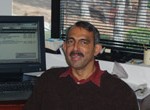 Today I received a sad email about a 24 year old family friend who died in a road traffic accident in Mumbai. Rohan Sardar skid on the road while riding his bike, suffered a head injury and, after much delay at the ill equipped, civic run Shatabdhi Hospital, was moved to Kokilabai Dhirubai Ambani Hospital where he died. His family and friends are devastated.
Today I received a sad email about a 24 year old family friend who died in a road traffic accident in Mumbai. Rohan Sardar skid on the road while riding his bike, suffered a head injury and, after much delay at the ill equipped, civic run Shatabdhi Hospital, was moved to Kokilabai Dhirubai Ambani Hospital where he died. His family and friends are devastated.
India boasts the second fastest growing motor vehicle market in the world with an annual growth rate of nearly 9%. In terms of vehicle ownership, India currently ranks 134th in the world with only 41 vehicles per 1000 persons—by comparison the US is third with 797 vehicles per 1000 persons. The future market for motor vehicles in India is huge and still untapped, and the motor vehicle industry drools at the prospect of this market of 1.2 billion people. But what about safety?
India’s road traffic accident statistics are appalling. It already has around twice the number of deaths from road traffic accidents as the US (18.9 deaths per 100 000 people versus 10.4 per 100 000). When statistics are computed for deaths per 100 000 motor vehicles, India’s record is even more startling at almost seven times that of the US (100 deaths per 100 000 motor vehicles compared to 15 deaths per 100 000). Nearly 150 000 people die from road traffic accidents each year in India compared to around 33 000 in the US. Most deaths in India are pedestrians, cyclists, and two-wheel riders.
One of India’s sources of potential is her young population, and most economists agree that this “demographic dividend” is vital to the country’s future. This potential will remain unrealized if India does not take action to prevent premature deaths from avoidable injuries—such as road traffic accidents.
That so many die from preventable road traffic accidents—and that there is a lack of easy access to emergency head injury care—should be unacceptable to a modern India that aspires to the global stage. The chaotic growth of traffic on Indian roads needs to tempered with better public transport, better road infrastructure, greater enforcement of traffic laws, and increased citizen awareness. If over 800 million people can be mobilized in the largest election in the world, India can do anything if she sets her mind to. Unfortunately, the tragic story of Rohan Sardar tugs at the heart and speaks loudly to a failure of public health and road safety policy in India.
K.M. Venkat Narayan is Ruth and O.C. Hubert Professor of Global Health and Professor of Epidemiology and Medicine at Emory University Atlanta. He is a product of three continents, having lived and worked in India, the United Arab Emirates, United Kingdom, and United States of America.
